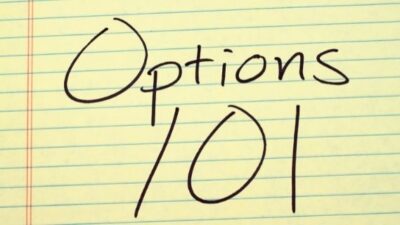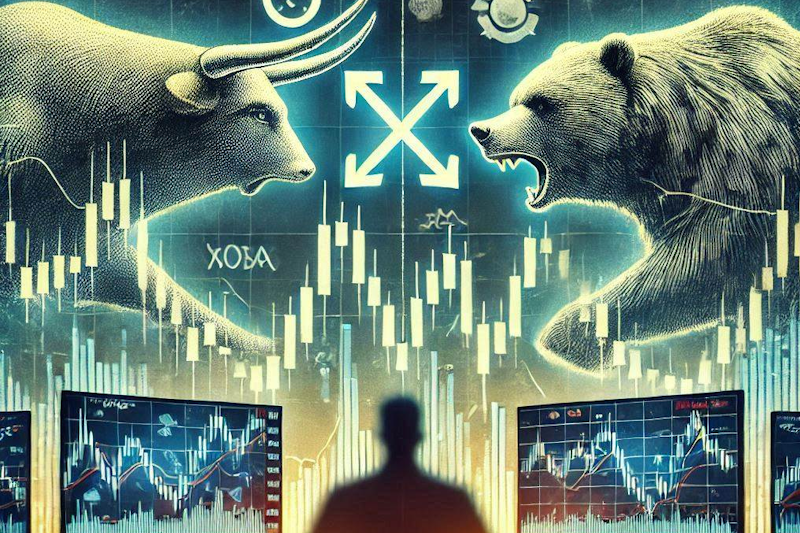Within language, there lies a trap.
The political left branded themselves “liberal” during FDR’s term. But their politics have nothing to do with liberty.
You might also think that “critical” in critical race theory means critical reasoning. Wrong. Critical theorists explicitly consider reason a pathology.
To them, critical refers to using criticism as a technique. Critical theorists identify an aspect of an existing power structure to criticize. Then, unfettered by reason, take that criticism to the extreme to tear that power structure down.
Even when they have a point, that point gets lost amidst the underlying agenda that ultimately rejects reason.
Socrates warned of this when he stated, “The beginning of wisdom is the definition of terms.” Confucius said much the same thing. They wanted you to consider the true meaning of words to improve understanding.
But politics and philosophy aren’t the only realms where words do more to confuse than inform. Investing has its fair share of verbal traps as well.
“Black Swans” does not mean unlikely adverse events. Low probabilities are insufficient. Black Swans refer to the seemingly impossible. Impossible, that is until they happen.
Investors face a similarly misleading landmine when they hear “inflation.”
It can mean an inflating money supply, rising prices, or something else entirely.
And to get the Big Calls right, you need to know what type of inflation you face…
Inflation as Its Own Cure
When you think about higher prices, you first need to consider its source.
When natural resources become harder to find, the costs to develop them go up, even when demand stays the same. In this case, declining supplies lead to tighter conditions and higher prices. But technology solves scarcity. Rising development costs push up prices and leave you with a short-lived phenomenon that nips demand in the bud.
Supply-chain snarl-ups act as a constraint on supply. Goods in a warehouse or sitting on a container ship mean nothing unless consumers can get at them. So, we can attribute at least a portion of last year’s rising prices to cost-push forces.
But that’s not the only factor driving prices higher today.
When rising employment, higher income, or cheaper credit (or checks directly from the government) drives up spending, increasing demand pulls prices higher. This demand-pull inflation is what oil markets have experienced over the last year. And the knock-on effect of rising energy prices has spread through the entire economy, especially food prices.
But higher energy prices have brought on dramatically more supply. Plus, stimulus-fueled demand has run its course. So, the next big leg for energy (and consumer prices generally) is down from a demand standpoint.
Apart from tighter supplies or rising demand, inflation can take root in another source. One that feeds on itself rather than burning itself out.
And when I worry about inflation, collapsing confidence is the inflationary source I worry about the most.
Confidence Demands Appreciation
Currencies ultimately derive their value from confidence, whether fiat, hard assets like gold, or crypto.
People will accept currencies they are confident others will willingly receive in the future. And the simple fact that dollars still grease the skids of most international trade implies a high degree of confidence.
But confidence can be a result of habit. Petro-dollar-inspired global payment systems bias the dollar. So, more economic activity necessarily begets more dollar demand.
Unfortunately for the U.S. government, confidence is a fickle mistress. She can switch favor on a dime. And once confidence begins flirting with other payment suitors, a reserve-currency asset can quickly devolve into a spiraling liability.
Threatening entire countries with turmoil by locking them out of global payment systems creates opportunities for confidence to find less bellicose partners. Abusing the privilege of her partnership by solving all problems with more money printing (even problems caused by printing money in the first place) will drive her to cast her eye elsewhere.
Maybe she will recall the good ‘ole days with former lovers like gold. Perhaps she will look to young studs like Bitcoin for companionship. Perhaps she will dole her affections on both – who am I to judge.
No matter how she shifts her gaze, runaway inflation sparked by collapsing dollar confidence isn’t the call for right now. But it is a Big Call. The implications of which you need to consider today.
Don’t get mislead by inflation’s many meanings. And understanding that confidence lies at the heart of good money can mean the difference between generational wealth and financial ruin.
No matter how her attentions turn, once she starts to look, everyone will be looking for the exits of a dollar-based system.
And you want to be through those exits before the mad rush begins.



